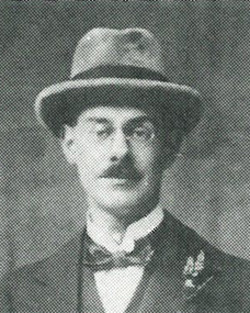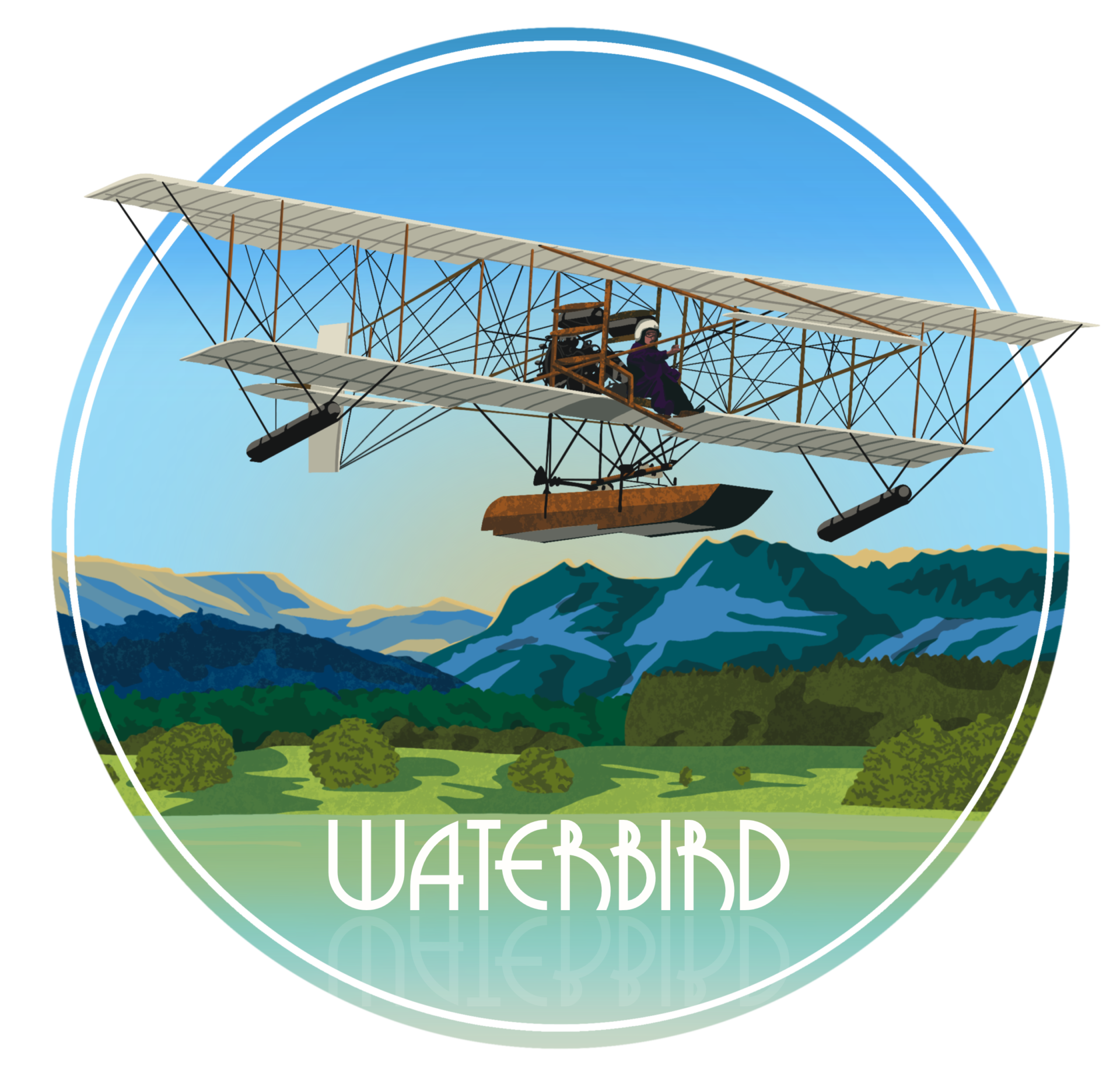Frank Herbert (1890 – 1976)

Described in his Westmorland Gazette obituary as a ‘pioneer in aerial photography’, Frank Herbert’s interest began upon attending the Blackpool Aviation Week with his father in 1909. He commenced photographing hydro-aeroplanes at Windermere with the second flight of Waterbird (see the above photograph) on 25 November 1911.
These 3 images are of the only known postcards of Waterbird, and these 5 images of Gnosspelius No. 2.
This is the first aerial photograph of the lake and was made into a postcard.
This is the first aerial photograph of Bowness-on-Windermere and was scanned from a postcard. Contrasting it with a photograph from Flight of 29 June 1912, reveals Waterhen’s wires and bamboo poles which have been edited out from the postcard.magazine
‘But perhaps the best example that typifies the enthusiasm and enterprise of the Herbert family, are the pictures in the air sequence taken by Frank Herbert.’ – Fenty’s Album by Irvine Hunt.
Income was also derived from taking photographs of passengers.
The photographic business was started in Durham by Frank’s grandfather, Robert. Before becoming a photographer, Robert had been a taxidermist, a barber, a bit of a poacher and had even practised a little bloodletting!
Frank’s father Henry moved to Bowness in 1886 and started a business at St. Martin’s Studio on Lake Road, ultimately trading as Herbert & Sons. (Note Frank proudly standing outside in this photograph and also the glass roof which is still there.)
Frank ran the business with his elder brother Louis. In World War 1, Frank served as a motorcycle despatch rider with the Border Regiment in India and Mesopotamia, whilst Louis was a photographer in the Royal Naval Volunteer Reserve, Royal Naval Air Service and Royal Air Force. – The Review journal, 2008/09.
The business was sold in 1960 upon Frank’s retirement. The premises are now a Restaurant.
– Grateful thanks to Joan Ledger for permission to reproduce her father’s photos.
